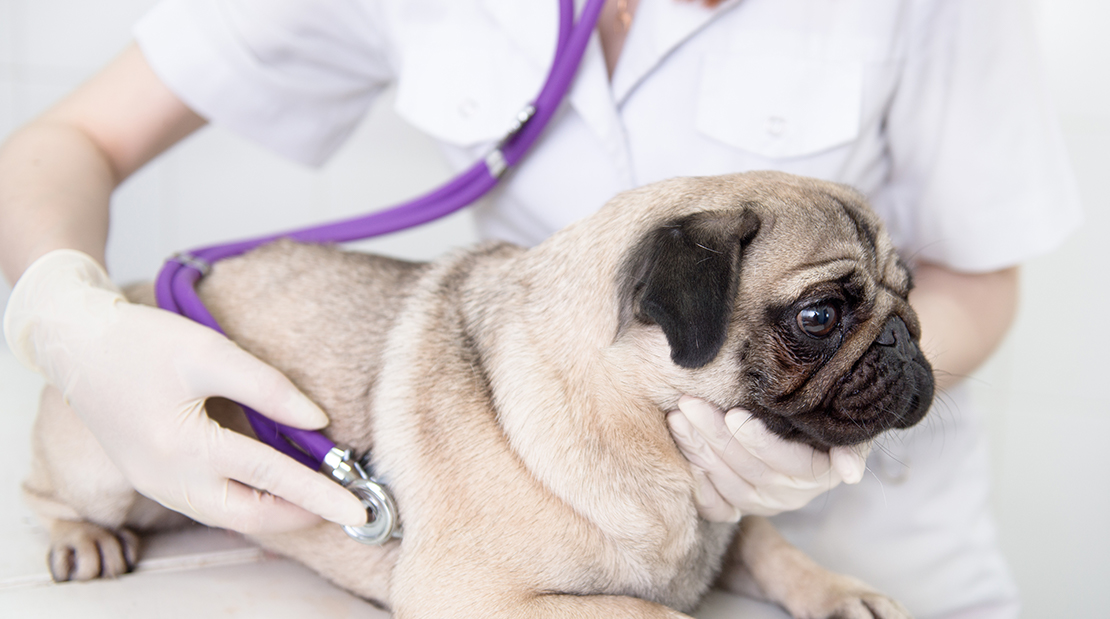
Canine Pancreatitis
Pancreatitis is a common condition in dogs that affects the canine’s digestive process. Commonness of the disease, however, does not lessen its seriousness. Dogs with pancreatitis can suffer from severe pain, and can experience digestive complications in the future.
The pancreas plays an important role in the body, like producing enzymes that break down food during the digestive process, and producing insulin, which regulates sugar levels and the metabolism.
Most cases of pancreatitis are caused by the consumption of fatty foods, while other cases are a result of non-food related items. The presence of fatty food and foreign bodies can cause the pancreas to become hyperactive, and send digestive enzymes into overdrive. In untreated and severe cases, these enzymes can begin to breakdown and digest the pancreas, as well as other organs in the body.
Dogs with pancreatitis can exhibit external symptoms including:
- Vomiting
- Loss of Appetite
- Lethargy
- Diarrhea
- Dehydration
- Abdominal Pain
Internal symptoms include:
- Internal bleeding
- Pancreatic Swelling
An occurrence of pancreatitis can happen acutely or chronically. Acute pancreatitis can manifest itself within hours or days after consumption of trigger foods, while chronic pancreatitis is an ongoing or reoccurring condition caused by previous episodes of the disease. Dogs who exhibit symptoms should be seen by a veterinarian for proper diagnoses.
Pancreatitis is typically diagnosed by testing a sample of the dog’s blood. X-rays of the abdomen may also be taken to screen for any swelling of the pancreas. The pancreas sits behind the abdomen, and can sometimes be hard to detect on an X-ray, unless the swelling is really severe. Because of this, vets usually use blood testing, or a combination of both to properly make a diagnosis.
Multiple steps are taken to treat pancreatitis and any secondary infections that may have occurred as a result of the condition. IV fluids are administered to treat dehydration, and pain medications are provided for temporary relief. Depending on the case, a fasting period may be recommended in order to give the digestive tract some time to settle down. After fasting, a low-fat intestinal diet may be prescribed to accommodate the condition of the pancreas.
Acute pancreatitis can be prevented by eliminating fatty foods from your dog’s diet. Table food is often the culprit of this disease. Examples of fatty table food include:
- Turkey Skin
- Chicken Skin
- Ham
- Bacon
- Avocado
- High Fat Cheese
All dogs are susceptible to pancreatitis, but some are more prone than others. Mini Schnauzers, for example, have the highest reported case of pancreatitis. Other small dogs like Yorkie’s, Cocker Spaniels, Poodles, and Dachshunds are easily affected as well.
The most effective way to prevent your canine from suffering from pancreatitis is to manage your pet’s weight, and follow a “no table food” rule of thumb. Also, it will help to be proactive in preventing non-intentional consumption. Make dog temping items like trash and leftovers less accessible to your pet. Be cognizant of your dog’s whereabouts when you’re cooking or barbequing. Dogs will hang around or go for scraps of food that may fall during the process. Remember, the onset of pancreatitis can happen with just one occurrence of high fat intake.
In some cases, chronic pancreatitis can be idiopathic, or without a known cause. In most cases, however, owners can follow the recommendations to prevent the disease. Immediately contact your vet if you suspect your canine companion is exhibiting signs of pancreatitis. If you have more questions about pancreatitis, reach out to us at CY-Fair through our Facebook or Twitter page.

